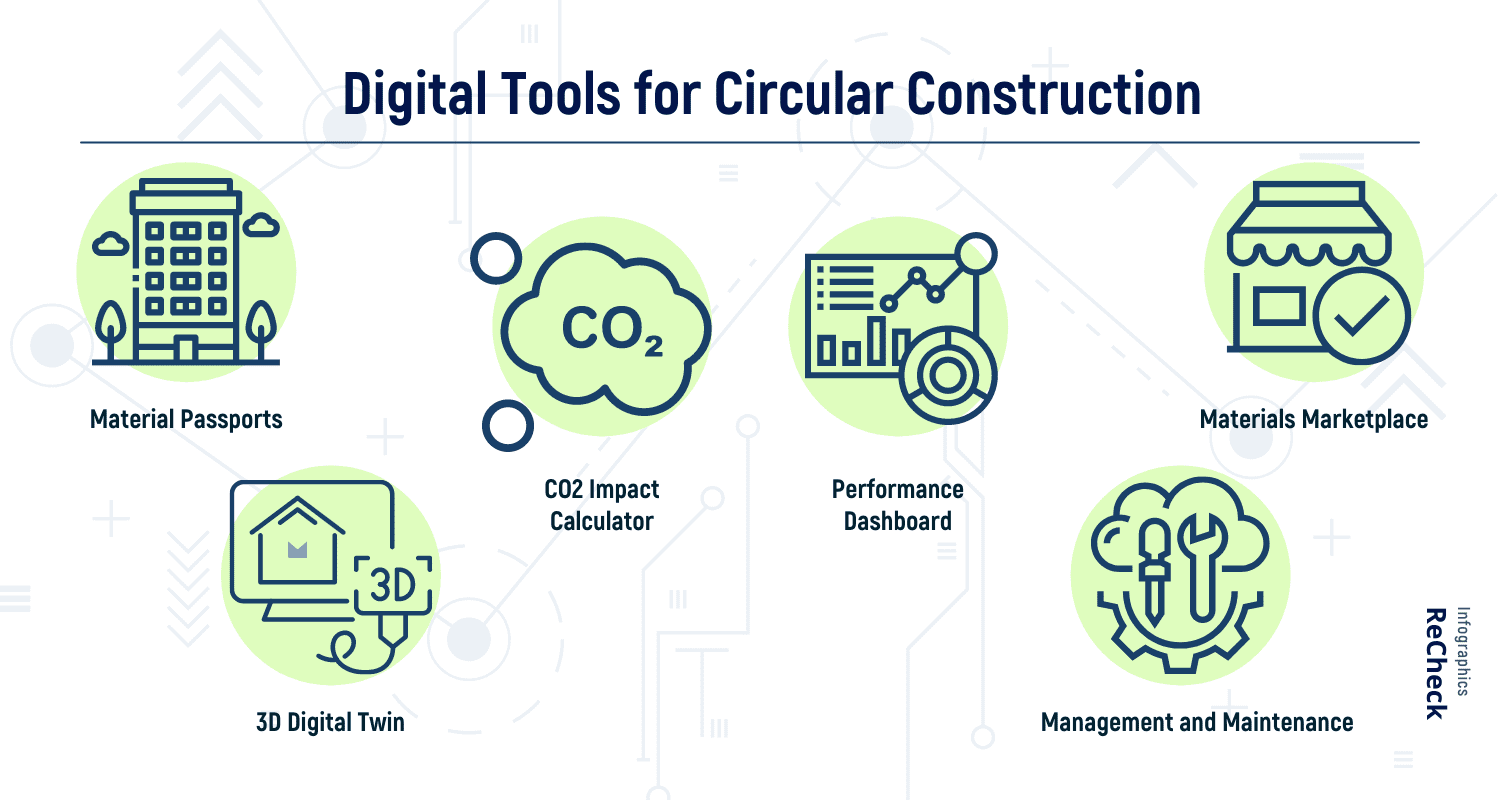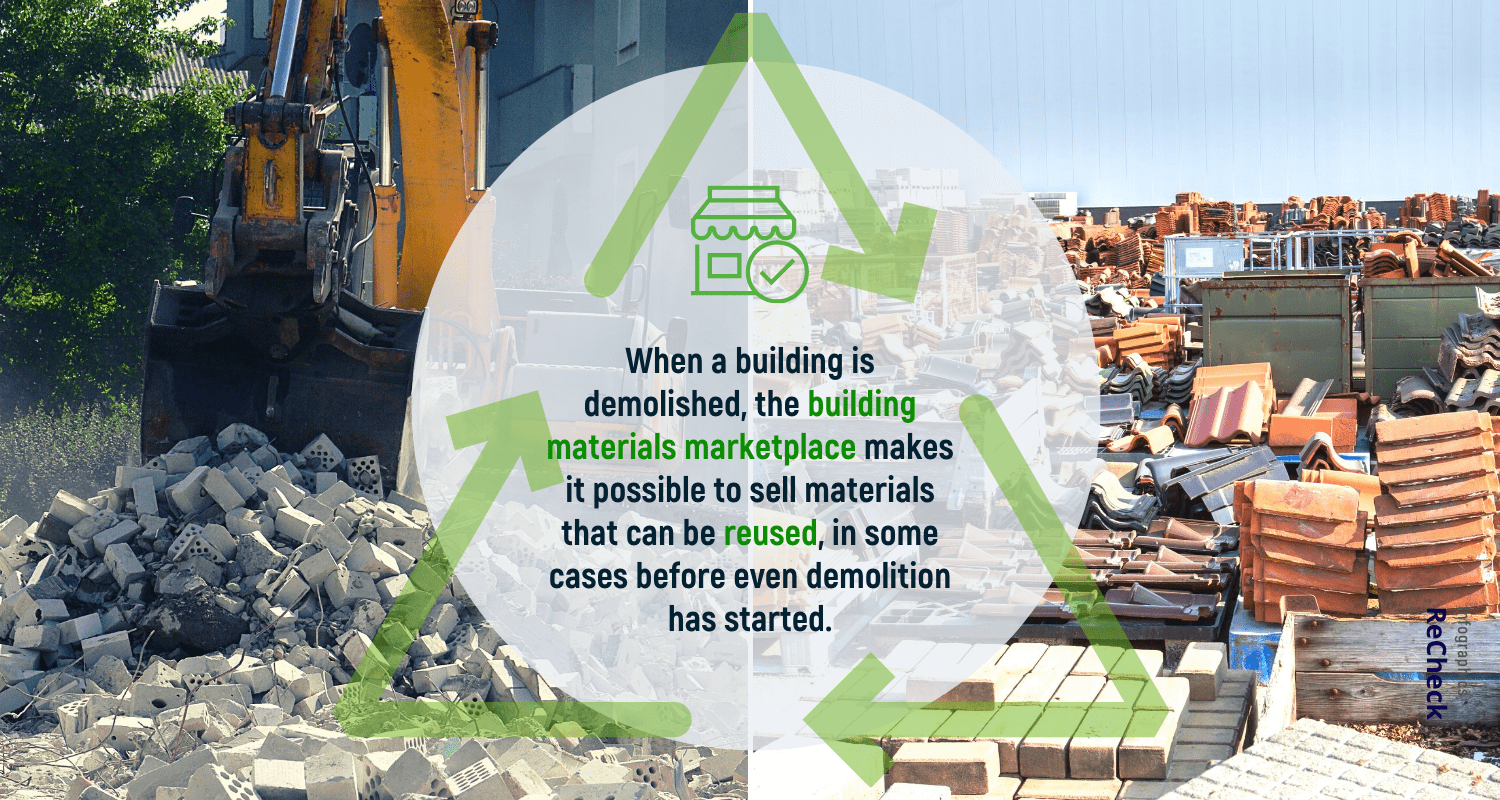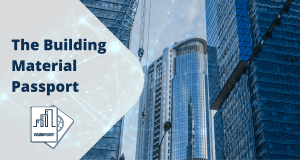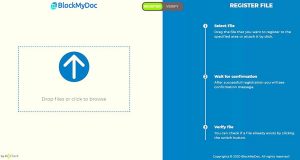ReCheck helps the Dutch platform to improve the security and integrity of its building material passports by providing an API to connect the software to the blockchain. The platform for Circular Construction allows for easy and secure access to all building materials data, as records are stored on the blockchain.
Project Background
Construction and demolition waste (CDW) accounts for about 1/3 of all waste produced in the European Union. About half of it is currently recycled in most of the EU countries, but the majority of CDW is destined for backfilling and downcycling. In fact, in Northwestern European countries reuse and high-quality recycling (upcycling) of CDW is below 3%. One of the main reasons for the lack of better recycling is the poor digitalization of the construction sector which hinders the better exploitation of circular materials.
The Platform for Circular Construction
The project for Digital Deconstruction is financed by the Interreg program and it is meant to develop an innovative digital system to support better decision-making. The platform itself comprises a few digital functionalities such as 3D scanning, Building Information Modeling, a digital materials & buildings database, and blockchain technology. The comprehensive system helps in planning and executing the most sustainable and economical deconstruction and reuse of building materials.

Additionally, using innovative Building Information Model processes, a cycle is created between design, construction, and demolition. That way scarce building materials can be reused, which will lead to reduced CO2 emissions in the construction industry.
Material passports
The material passport functionality gives materials a digital identity. That identity is created by assigning some unique material characteristics, including the quality, quantity, size, colour, recyclability, and dismantling of the material.
The Material Passports tool helps identify and evaluate building materials at any phase during the product and building level. Then, the building material passports increase the value of a building by making it easy to repair and easy to recover materials during renovation or demolition. All material passports are classified according to NL/SfB standards and are automatically generated, and stored in the platform so that the information is easily available and updated.
Why does the construction industry need blockchain?

ReCheck’s role in the project is bridging the building material passport with blockchain. The immutability and transparency qualities of blockchain ensure that all materials data is protected from manipulation or loss, and it is easily accessible for verification and validation purposes. Once a record for a digital certificate on building material is created on the blockchain, it cannot be changed or deleted. All data related to building materials are protected with time stamps.
The future of Digital Circular Construction
As the construction industry digitizes and starts using technology to boost circularity or the building materials, new marketplaces are being created. When a building is demolished, the building materials marketplace makes it possible to sell materials that can be reused, in some cases before even demolition has started. From wooden beams to roof tiles, all kinds of building materials can be reused instead of being downcycled.
Circular construction is the future. It will support better distribution and usage of raw materials, and make our built environment much more sustainable.
About Block Materials
Block Materials focuses on the bridge between science and practice by developing applications around economics, law, IT, and construction that are suitable for the circular economy. The Dutch company has profound experience with CO2 calculations (social and economic values) and translates that experience within the digital real estate information system Cirdax+.
About ReCheck
ReCheck BV is a Dutch startup that helps businesses reach their sustainability and profitability goals by providing decentralised solutions. We help organisations with data protection, tracing, and verification. For the last five years, the company has helped various organisations boost the transparency of their processes and data management systems – making them more secure, fraud-proof, and compliant with the privacy-by-design and user-centric principles.






